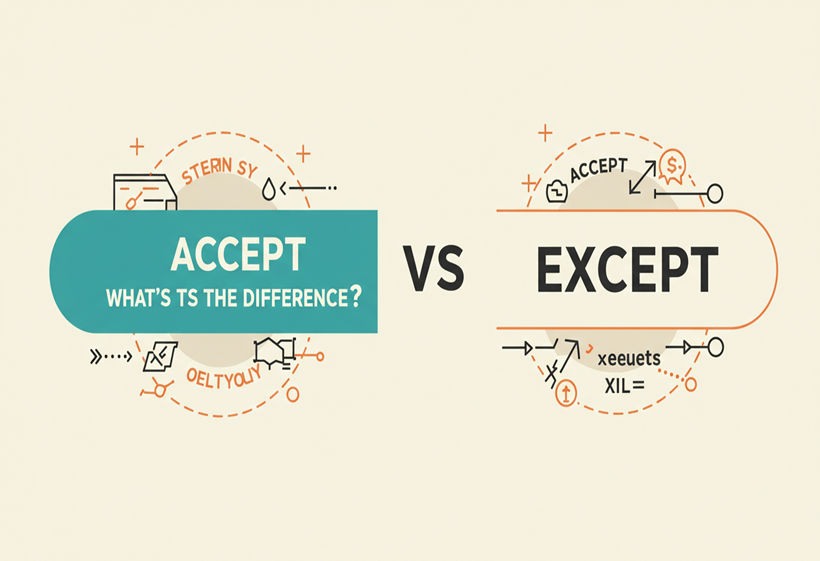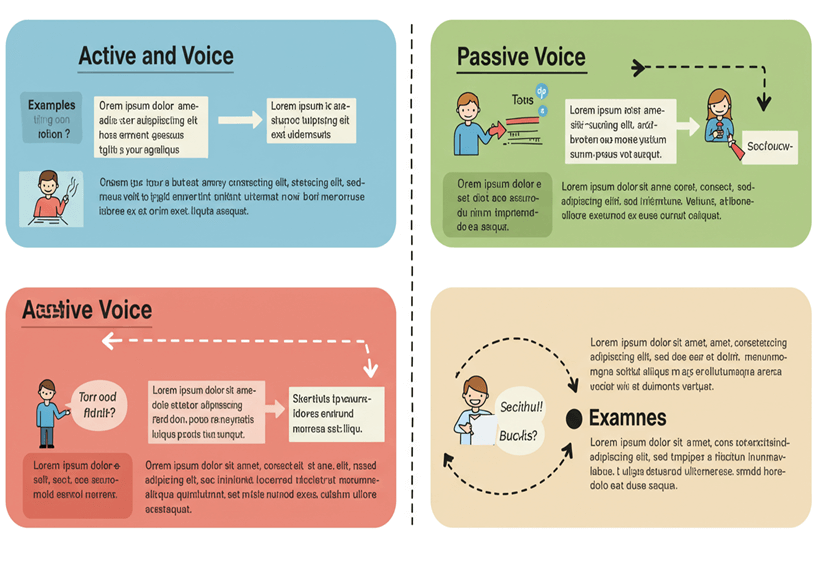Accept vs Except: What’s the Difference?

“Accept” means to receive or agree to something, while “except” means to exclude. “Accept” is a verb, used when acknowledging or agreeing, whereas “except” is a preposition or conjunction, indicating exclusion.
For example:
-
She accepted the job offer. (She agreed to take the job.)
-
Everyone was invited except John. (John was excluded.)
Accept vs. Except
| Word | Meaning | Example |
|---|---|---|
| Accept | To receive, agree, or approve | He accepted the gift happily. |
| Except | To exclude or make an exception | All students except Mike finished the test. |
Regional Preference (US vs. UK Usage)
| Word | US Usage | UK Usage |
|---|---|---|
| Accept | Common in all contexts | Same usage |
| Except | Common as a conjunction or preposition | Same usage |
Understanding the Difference
The distinction between “accept” and “except” comes from their linguistic origins.
-
Accept comes from Latin acceptare, meaning “to take willingly.”
-
Except derives from Latin exceptus, meaning “to take out or exclude.”
These different roots explain their separate meanings today.
Common Mistakes and How to Avoid Them
Many confuse these words because they sound similar. The key is their function:
-
Accept is an action. If you can replace it with “receive” or “agree,” it’s correct.
-
Except means exclusion. If “excluding” makes sense in the sentence, it’s correct.
Example Sentences for Clarity
-
She accepted the challenge with enthusiasm.
-
We invited everyone except Tom.
-
The school accepts late submissions under special circumstances.
-
I love all vegetables except broccoli.
-
They accepted the terms of the contract without hesitation.
Memory Trick to Remember the Difference
Think of “Accept = Agree” and “Except = Exclude.”
-
If something is included, it’s accepted.
-
If something is left out, it’s excepted.
You can also remember:
-
“A” for Accept and Agree
-
“Ex” in Except means Exclude
Grammar Rules and Writing Style Guides
-
AP Stylebook: Recognizes both words as distinct, advising clarity in journalistic writing.
-
Oxford Dictionary: Provides strict definitions aligning with formal and informal usage.
-
Chicago Manual of Style: Recommends distinguishing these words, especially in academic and business writing.
Exceptions and Special Cases
There are rare cases where both words might appear in the same sentence, creating confusion:
-
I will accept all responsibilities except those assigned to John.
-
She accepted the position, except for the travel requirement.
These cases show why understanding their difference is crucial.
Key Takeaways
-
Accept = Receive or agree (She accepted the offer).
-
Except = Exclude (Everyone except Jake was there).
-
Easy Trick: Accept = Agree, Except = Exclude.
-
Grammar rules confirm their distinct usage, even in formal writing.
Now that you know the difference, try using both words in your own sentences!







